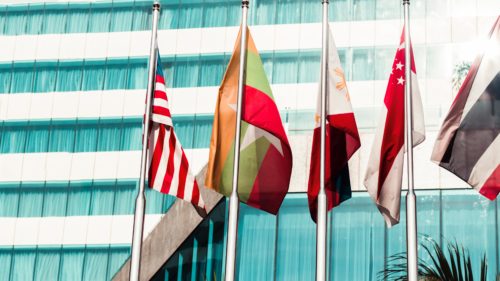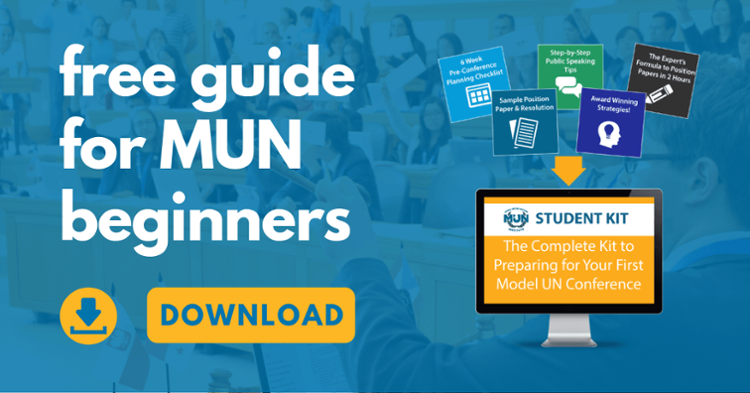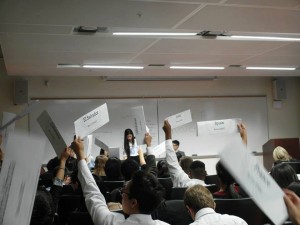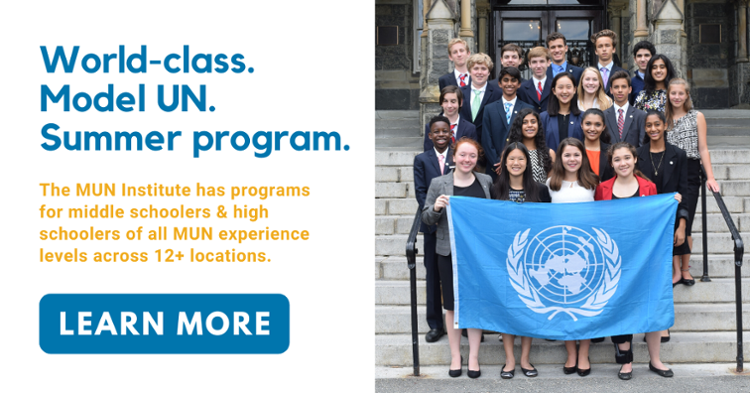It’s everyone’s worst nightmare. Walking into a conference, a brand new experience, and having absolutely no idea what to do. You’ve been told it’s easy, “Model UN can be learned during a conference,” they say. In reality, if you want to start off your MUN career with a bang, it’s important to come to your first conference prepared.
Personally, when I went to my first conference, I was dumbfounded, and by the end of it, I wish I had known the following ten things before I walked in:

2. What MUN is. Hopefully you already have an idea as to what Model UN is. It’s a simulation of the United Nations! But there’s much more to it. Model UN , simply put, is a diplomatic competition. Students are, in most cases, assigned countries, and their job is to express their countries beliefs in committee in order to pass favorable resolutions. Students who show the most skills in negotiating, public speaking, paper/resolution writing, and diplomacy are those who receive awards. In general, MUN is used more to foster those skills than to actually simulate the United Nations.
3. The Different Types of Committees. There are three main types of committees:
- General Assemblies (GAs): These committees simulate the six GAs, DISEC, ECOFIN, SOCHUM, SPECPOL, Administrative and Budgetary, and Legal. They are typically the largest committees and pass non-binding resolutions.
- Specialized Committees: These committees do not always simulate United Nations committees, but when they do, they simulate one of the fourteen ECOSOC committees. They can also simulate other congregations of delegates, such as the International Olympic Committee or the United States Senate. Typically, specialized committees are smaller than GAs.
- Crisis Committees: These committees are made to force delegates to think on their feet. They can be anything from Historical Security Councils to futuristic rebel meetings. Delegates are constantly provided with random crisis updates that can completely change the flow of committee at the chairs discretion. These committees, typically for more advanced delegates, are among the smallest in MUN.
4. Parliamentary Procedure. Most MUN conferences in North America use this type of procedure (check out THIMUN and UN4MUN procedure too!). Walking into your first committee session can be confusing, because people aren’t going to be using pronouns like I or my. Instead, they’ll be following Parliamentary Procedure. Since you will most likely be representing a nation, it is important to express beliefs on behalf of your nation. For example, “The United States is a strong supporter of the conservation of resources.” Parliamentary procedure also includes:
- Points of Inquiry. These are used if you have a question about an aspect of committee you don’t understand.
- Points of Personal Privilege. These are used if you experience some sort of discomfort such as the inability to hear a delegate, you would kindly bring this up to the chair.
- Points of Order. These are used if you believe there was a mistake made in the rules of procedure.
- Motions. Motions are used mainly to transition between stages of committee. For example, motions are used to move into a moderated caucus (see #5) or to move into voting procedure. They can also be used to open and suspend debate and various other things that vary from conference to conference.
5. The Phases of Committee. Committee is usually split up into four main phases, they are:
- Speakers List. The speakers list is where delegates usually begin and is usually used to discuss opinions rather than foster debate. During these, it is necessary to define your countries opinion on the topics discussed in the background guide.
- Moderated Caucuses. Moderated caucuses usually immediately follow Speakers Lists, and encourage more back and forth debate. Speakers usually speak from their seats about a set topic and the speaking time is less than that of a Speakers List. During these, you should be arguing as to why your countries policy/your solutions should be carried forward with.
- Un-moderated Caucuses (Unmods). Unmods are used to form blocks and write working papers. Most of the time, motions for unmods take place after a few moderated caucuses when clear opinions have already been stated. During these you should either be convincing others to work with your block, negotiating mergers, or writing your working papers.
- Voting. Voting procedure is typically the last portion of committee, and is invoked by a motion. Working papers become draft resolutions when introduced, and then, if passed, become resolutions.
6. How to Write Working papers. Working papers consist of signatories, sponsors, pre-ambulatory clauses, and operative clauses. They are meant to contain solutions to the topics debated in committee. For more information on how to write a working paper, check out this link.

7. How to Research. Your background guide is NOT your only form of research. It’s important to study the topics, country policies, and how you want to represent your country in committee. Check out the following article on what to research and how to efficiently organize your research into a binder.
8. How to Write a Position Paper. Most conferences require you to write something called a position paper preceding your first committee session. A position paper consists of three parts, Topic Background, Past International Action, and Country Policy. More detailed instructions can be found here and here

10. How to Make the Most of it. Going to your first conference, for many of you, will be intimidating. There will be an influx of power delegates (those who only care about awards, and will do anything in their power, right or wrong, to win), and if it’s your first time doing so much public speaking, you will most likely be nervous. That doesn’t mean you can’t enjoy yourself! There is nothing more rewarding than finishing your first conference with a wealth of information that will help improve you as a delegate and further increase your chances at success in the future.
Want to learn even more MUN tips & strategies? Check out the MUN Institute!



